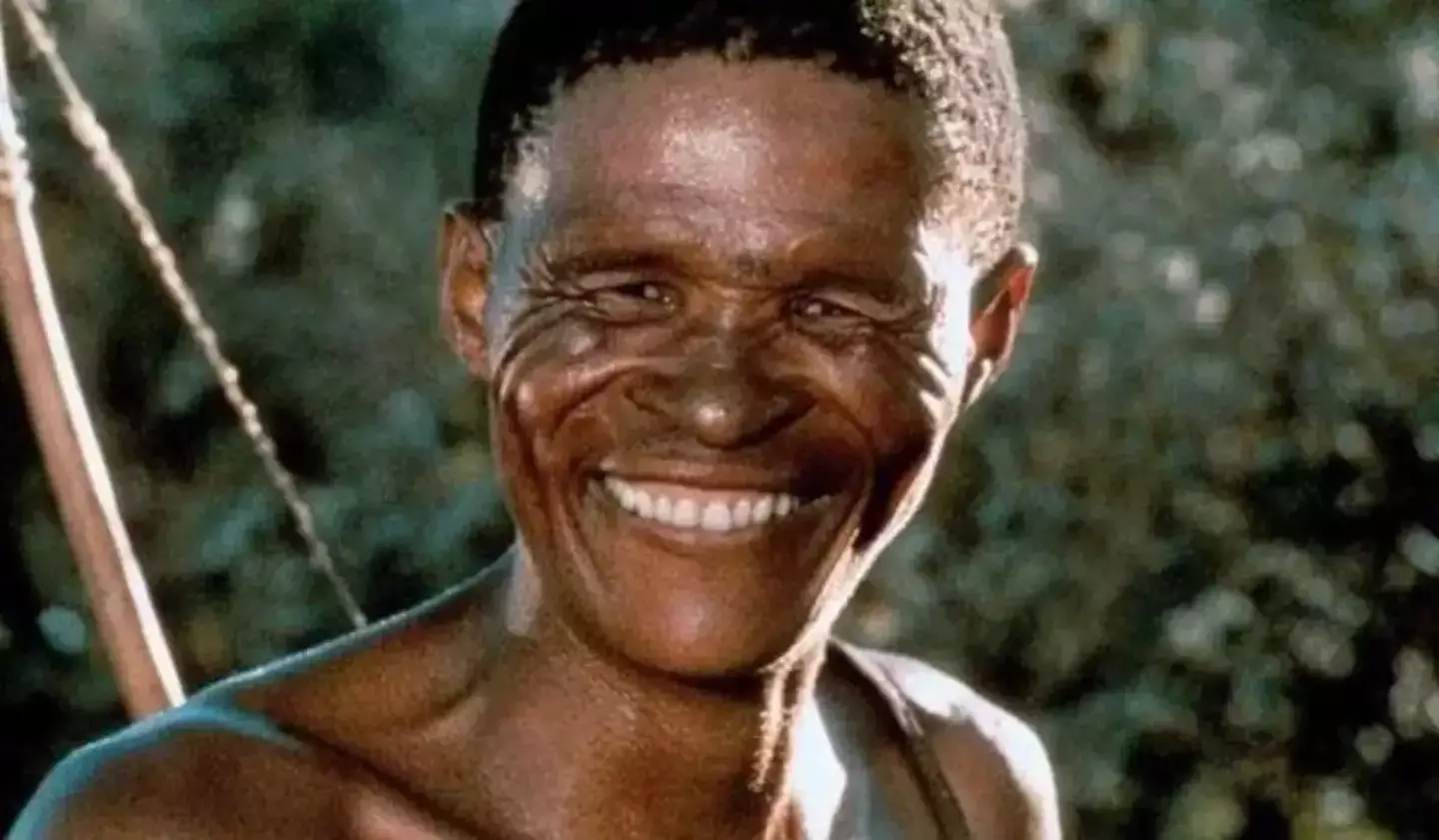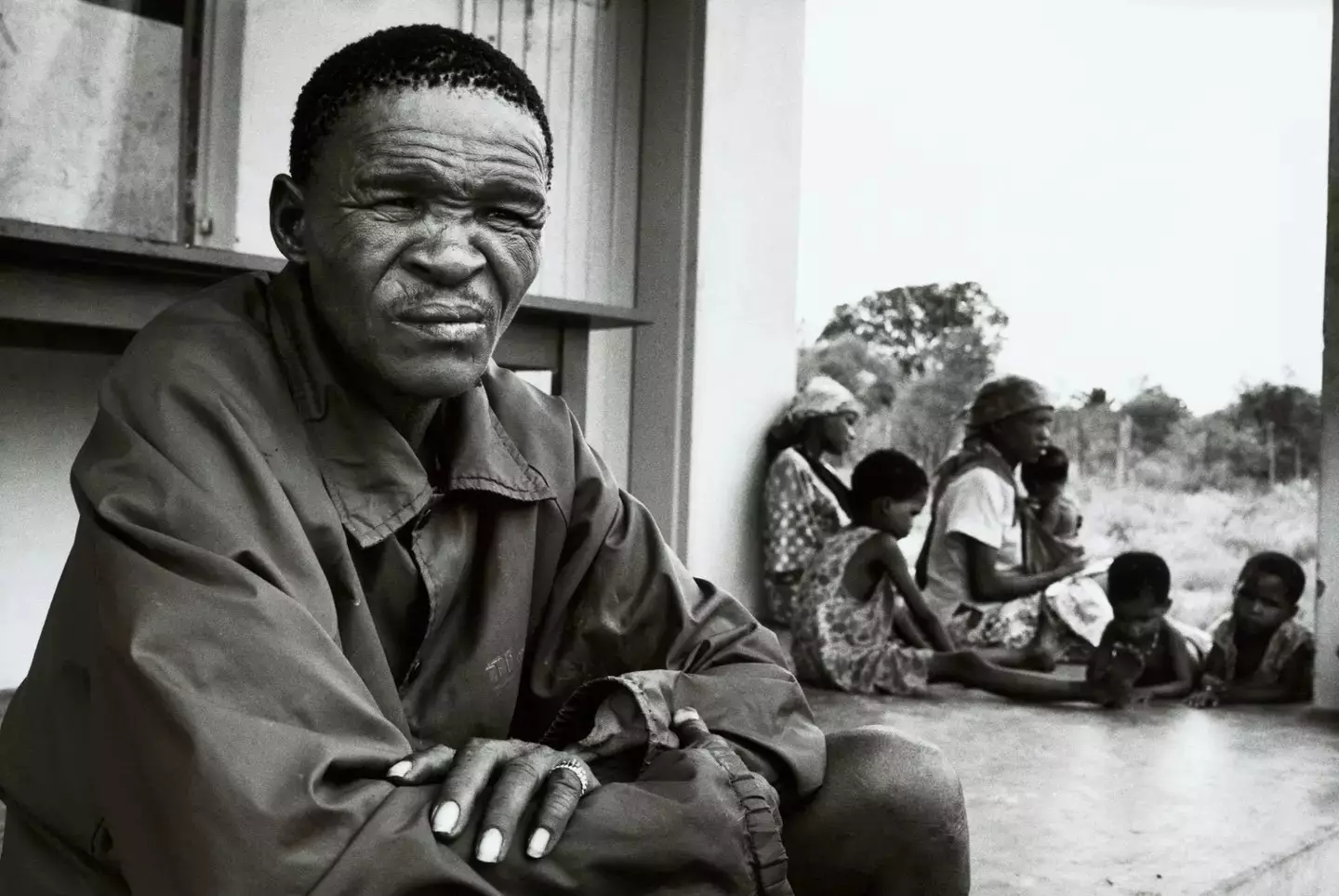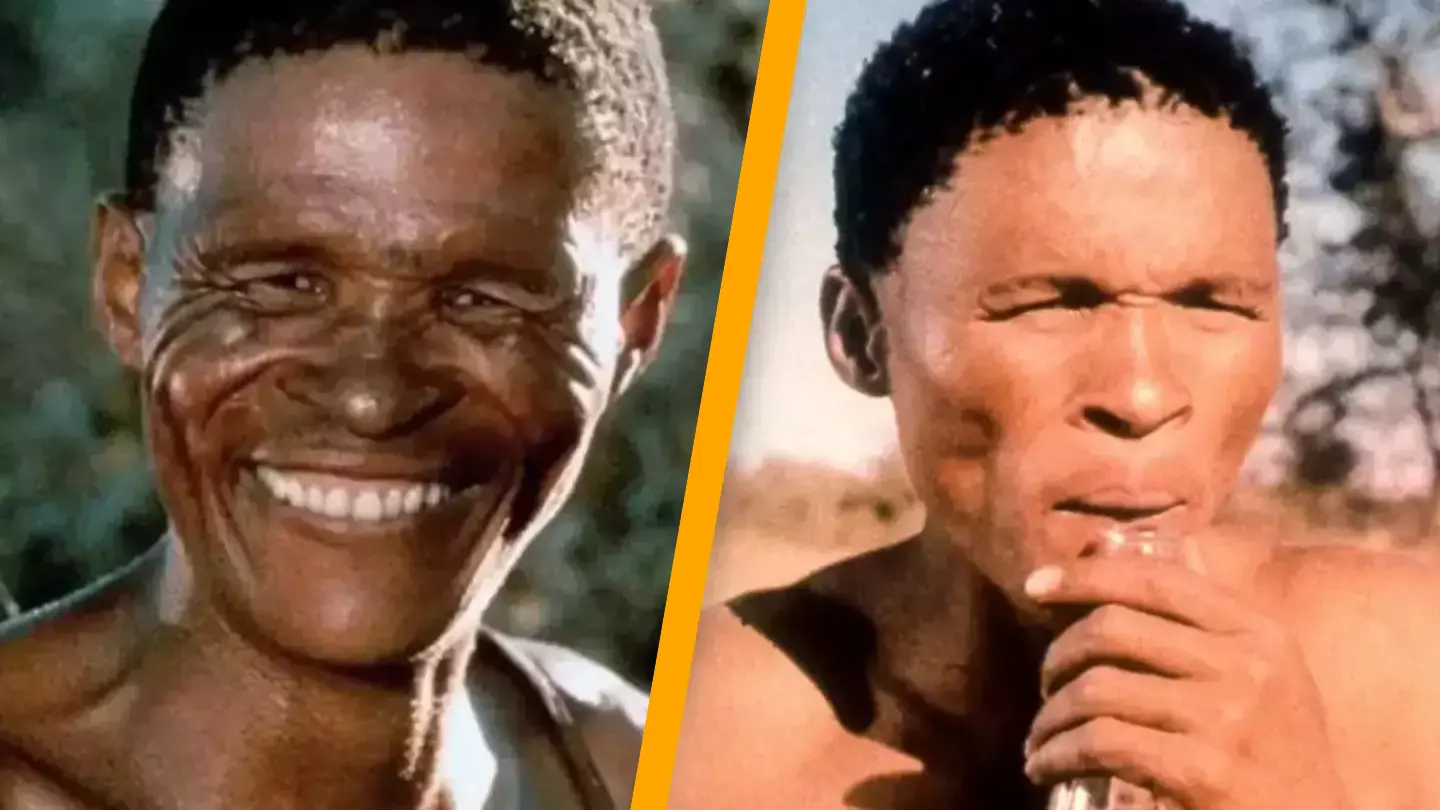An actor who starred in a film that grossed $90 million was compensated with only $300 for his role.
Working in the film industry is undoubtedly complex, and one actor, in particular, learned this the hard way.
In an era where some actors are earning millions before even stepping onto the set, the late N!xau Toma was given a paltry upfront payment for his role in Jamie Uys’ comedy, The Gods Must Be Crazy.
This 1980 comedy narrates the tale of a South African tribe that stumbles upon a glass Coca-Cola bottle, which descends from an airplane. Mistaking it for a divine gift due to its sudden appearance, they believe it was sent by their Gods.
The story unfolds in a rather complex way as everyone is eager to claim the enigmatic object, resulting in absolute chaos.
The tribe’s leader, Xi (Toma), attempts to return the bottle to restore harmony, setting off on a whimsical quest to the ‘end of the world’.
In this well-acted lead role, the main character encounters a biologist (Marius Weyers), a newly appointed village school teacher (Sandra Prinsloo), and a group of guerrilla terrorists.

It’s clear how eccentric this story is.
Toma was omnipresent in this film, yet he was compensated with such a modest amount for all his efforts.
On payday, film director Uys mentioned that he paid Toma $300 for his initial 10 days of work, but the actor did not grasp the value of money.
Toma reportedly let the bills drift away in the wind, and subsequently, he was given 12 heads of cattle instead, according to claims.
He later received $100 monthly after filming concluded, in addition to $20,000 that was deposited into a trust account established in his name.

Born in Namibia, Toma led a remarkable life before venturing into acting, as he was among several individuals known as Bushmen, identifying him as an Indigenous hunter-gatherer.
He was fluent in Jul’hoan, Otjiherero, Tswana, and his rise to stardom through The Gods Must Be Crazy marked Toma’s first encounter outside his local community.
The film was shot in both Namibia and Botswana, although Toma was reportedly flown back home to the secluded region of Tsumkwe in the Namibian part of the Kalahari every three or four weeks to mitigate the cultural shock.
Toma passed away in his late fifties in 2003, with the confirmation of his death coming from local police where he resided.

